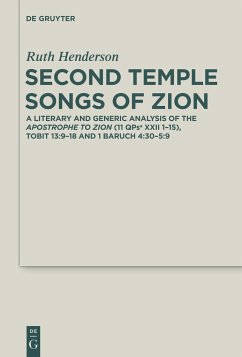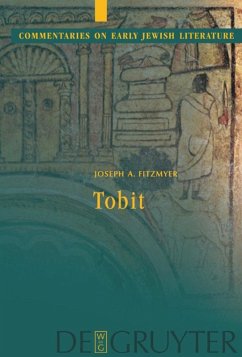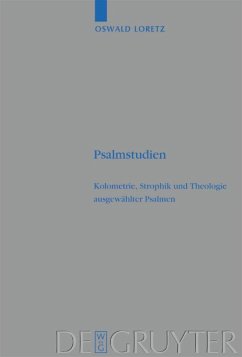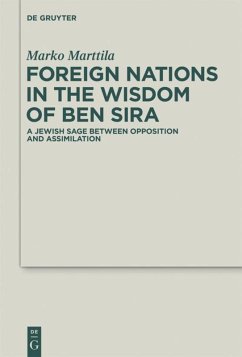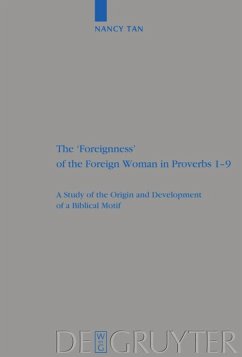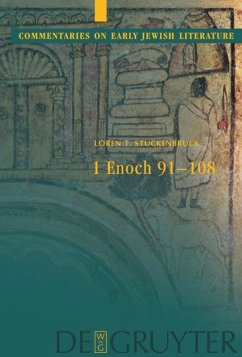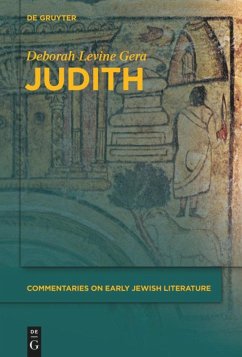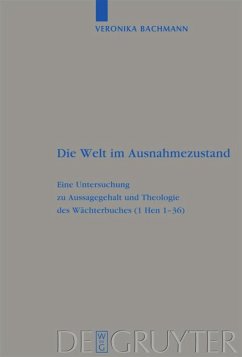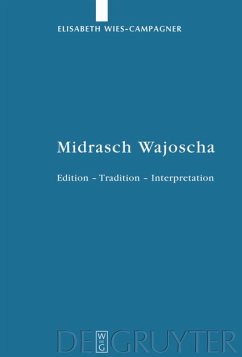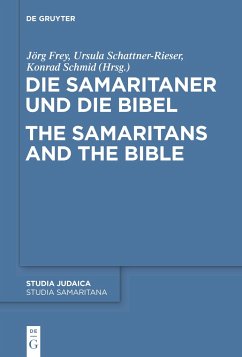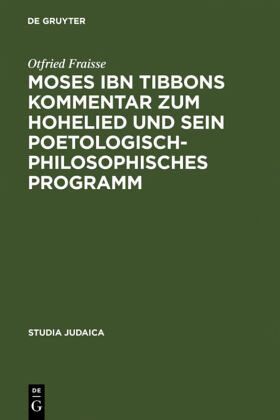
Moses ibn Tibbons Kommentar zum Hohelied und sein poetologisch-philosophisches Programm
Synoptische Edition, Übersetzung und Analyse
Versandkostenfrei!
Versandfertig in 6-10 Tagen
143,99 €
inkl. MwSt.

PAYBACK Punkte
72 °P sammeln!
The commentary that Moses ibn Tibbon (approx. 1195 - 1275) wrote on the Song of Solomon serves in this book as an example of the interlacing between Judaic-Arabic philosophy and Judaism¿s traditional interpretation of hymns of praise. The authentic text is first established through philological manuscript analysis, a step that allows the true contour of Moses ibn Tibbon¿s philosophy to emerge. He sought to render an exoteric materialist reinterpretation of the esoteric-metaphysical philosophy of Maimonides. This attempt not only aimed at a democratization of knowledge in medieval Jewish society but also led Moses ibn Tibbon to a philosophy of language that based the cognitive act on the aesthetic experience of the reader.
Am Beispiel des Hoheliedkommentars von Moses ibn Tibbon (um 1195 - 1275) wird die Verflechtung von jüdisch-arabischer Philosophie mit der traditionellen Hohelied-Auslegung des Judentums dargestellt. Durch philologische Analyse der handschriftlichen Überlieferung wird erstmals der authentische Text des Kommentars etabliert. Auf dieser Grundlage werden die wahren Konturen von Moses ibn Tibbons Philosophie sichtbar: Es ist der Versuch einer exoterisch-materialistischen Reinterpretation der esoterisch-metaphysischen Philosophie des Maimonides. Dies intendierte nicht nur eine Demokratisierung des Wissens in der mittelalterlichen jüdischen Gesellschaft, sondern führte Moses ibn Tibbon auch zu einer Sprachphilosophie, die den Erkenntnisakt auf die ästhetische Erfahrung des Lesers gründete.





